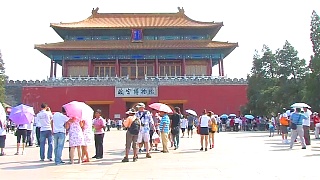
|
To be free, is to be off the time-lapse trajectory of the past into the future. This means to stop rationalizing and die to the past - only then one can truly live in the present moment. The past is still the past, but one is no longer its hostage.
What stands in the way of a true life is - you - that is, the past, that one thinks of as 'me' (a mush of programming and fantasies - the noise that precludes clarity).
The truth is simple; but it is not easy. One must be aware of one's thoughts and see them not as you but as relics; to see these thoughts as what they really are and not be ruled by them. The first, and crucial, step is to see how one has been hijacked by the past. To be free, is to be free of the past.
Truth is not about believing, or 'knowing', a bunch of concepts; truth is being real.
At BB, we can recommend Alan Watts, Jiddu Krishnamurti and Gabor Mate as sincere and wise voices to explore this more; though there are many others, these are straight talkers (some of their talks are featured here). The thing is - the guide is not the truth, it is only a guide; never trust in or believe a guide as though it is the truth - either you simply believe this or that, or you are true. Don't be an addict - to a belief. Don't be an addict to your past and ego.
10,000 years and 100,000 books of philosophy distilled into a few sentences. Once out of the prison of the past, everything else becomes clear.
Kyle Cease talks with Tom Bilyeu ...
Bonus film - with Jiddu Krishnamurti ...
Bonus film 2 - with Alan Watts ...
|

 HuangShan (Yellow Mountain), AnHui 黃山 (Scenic China Special, 2018 – 2)
HuangShan (Yellow Mountain), AnHui 黃山 (Scenic China Special, 2018 – 2)
 HuangShan (Yellow Mountain), AnHui 黃山 (Scenic China Special, 2018 – 2)
HuangShan (Yellow Mountain), AnHui 黃山 (Scenic China Special, 2018 – 2)



